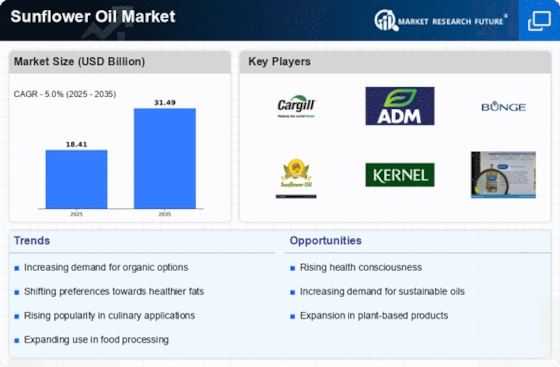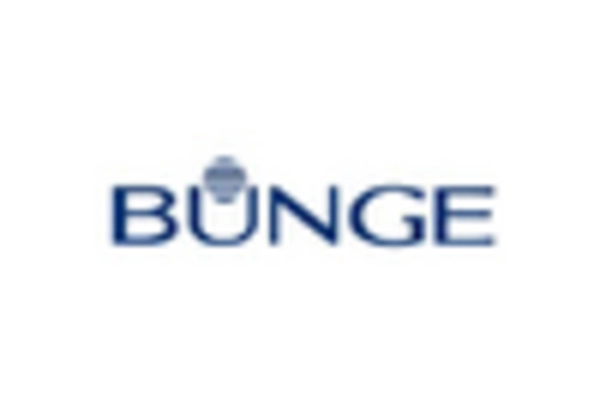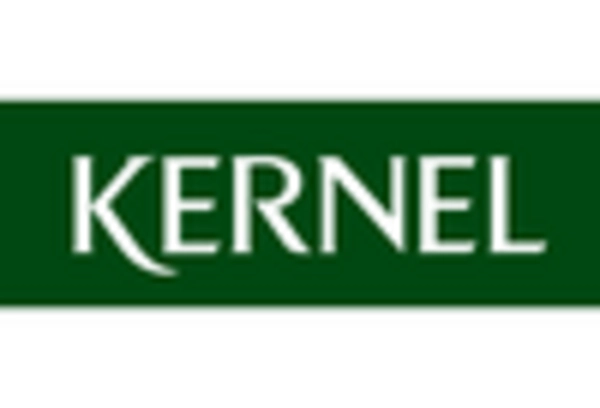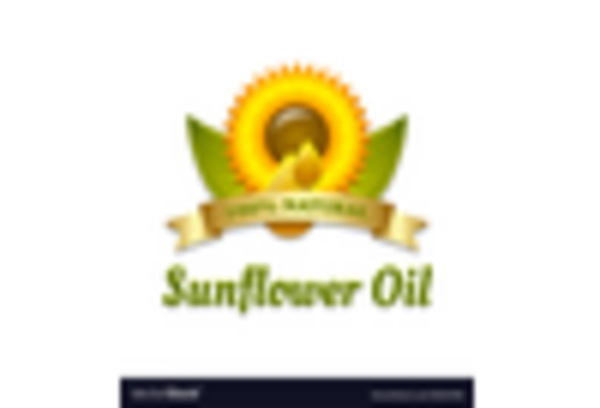Market Analysis
Sunflower Oil (Global, 2022)
Introduction
It is the same with the edible oil market. The sunflower oil market has emerged as a significant sub-market of the edible oil market, driven by rising awareness of health issues and the growing demand for vegetable cooking oils. The popularity of sunflower oil is also based on its light flavor and high smoke point. The high content of unsaturated fatty acids, vitamins and anti-oxidants makes it a good choice for home cooking and food processing. The rising popularity of natural and organic products has also pushed the demand for sunflower oil, as consumers are looking for alternatives to traditional cooking oils that meet their health and dietary needs. The sunflower oil market is characterized by the presence of various products, such as refined, unrefined and organic sunflower oil, which can meet the different needs of consumers with different preferences and dietary needs. As the industry develops, factors such as sustainable development, production methods and supply chains will play an increasingly important role in shaping the future development of sunflower oil.
PESTLE Analysis
- Political
- In 2022, the market for sunflower oil was heavily influenced by government policies aimed at promoting domestic agriculture. For example, the European Union allocated some one billion five hundred million to the Common Agricultural Policy for the support of oil-seeds farmers, which included sunflower farmers. The instability of the political situation in Ukraine, which is one of the world’s largest producers of sunflower oil, also affected the market. It is estimated that the disruptions caused by the conflict reduced production by thirty per cent.
- Economic
- In 2022, the price of sunflower oil fluctuated according to the market, and the average price of sunflower oil was about one thousand two hundred dollars a ton. This price was influenced by the lack of global supply and the increase in demand for food and biofuels. In addition, the high price of many countries, such as the United States, where the inflation rate was 7.5%, affected the purchasing power of consumers, resulting in a change in market behavior.
- Social
- In 2022, consumers’ tastes were moving towards healthier cooking oils. They preferred sunflower oil for its high vitamin E content and low saturated fats. Surveys showed that more than sixty-five per cent of North Americans preferred sunflower oil to other cooking oils, because of its perceived health benefits. In addition, the growing popularity of vegetarian and vegetarian-vegan diets accounted for a growing demand for sunflower oil.
- Technological
- The process of extracting and refining the oil has been considerably improved by technological developments. In 2022, the introduction of cold extraction methods increased the oil yield by about 15 per cent, while maintaining its nutritional value. The use of precision agriculture has also helped farmers to increase the yield from their sunflower crops by up to 20 per cent.
- Legal
- In 2022, the regulations on food safety and labelling became stricter. The American Food and Drug Administration introduced a new labelling requirement, namely that trans-fats should be declared. This posed a problem for sunflower oil producers. For a medium-sized producer to comply with the new regulations meant investing around $500,000 in the new labelling and production processes.
- Environmental
- In 2022 the sunflower oil industry was being increasingly criticized for its impact on the environment. Production of sunflower oil was estimated to be responsible for 0.9 kilograms of CO2 per liter of oil, and the demand for more sustainable agricultural practices was growing. In addition, several NGOs were supporting a reduction of pesticide use in sunflower production, with the goal of reducing the use of pesticides by 25 percent in five years, in order to promote the development of the soil and the life of the countryside.
Porter's Five Forces
- Threat of New Entrants
- The sunflower oil market has moderate barriers to entry. These include the cost of production equipment and compliance with food safety regulations. However, the growing demand for sunflower oil and the relatively low initial investment compared to other edible oils may draw in new entrants, thus increasing competition.
- Bargaining Power of Suppliers
- Suppliers’ power on the sunflower oil market is weak because of the many suppliers and the abundance of raw materials, such as sunflower seeds. The manufacturers can easily change their suppliers, which reduces the power of a single supplier to set the price and conditions.
- Bargaining Power of Buyers
- The buyers in the sunflower oil market have a high bargaining power because of the wide range of brands and alternatives. Consequently, consumers and retailers have an easy opportunity to change to another oil or another brand, which forces the producers to compete on price and quality to retain their customers.
- Threat of Substitutes
- The threat of substitutes in the market for sunflower oil is high because there are many other cooking oils on the market, such as olive oil, canola oil and palm oil. These substitutes can perform similar functions in cooking and preparing food, which means that it is essential for sunflower oil producers to differentiate their products.
- Competitive Rivalry
- Competition in the sunflower oil market is high, with many established and new entrants. The companies compete on price, quality and brand, which leads to a lot of advertising and innovation in products to attract consumers.
SWOT Analysis
Strengths
- High nutritional value, rich in vitamins and antioxidants.
- Growing consumer preference for healthy cooking oils.
- Strong production capacity in major sunflower oil-producing countries.
- Versatile usage in food, cosmetics, and industrial applications.
Weaknesses
- Price volatility due to dependence on weather conditions and crop yields.
- Limited shelf life compared to some other oils.
- Potential for over-reliance on a few key producing countries.
- Perception issues related to genetically modified organisms (GMOs).
Opportunities
- Increasing demand for organic and non-GMO sunflower oil.
- Expansion into emerging markets with rising disposable incomes.
- Innovations in packaging and distribution to enhance shelf life.
- Growing trend towards plant-based diets and sustainable products.
Threats
- Intense competition from other vegetable oils like olive and canola.
- Regulatory changes affecting production and labeling.
- Economic instability in key producing regions impacting supply.
- Climate change effects leading to unpredictable crop yields.
Summary
The sunflower oil market in 2022 is characterized by its strong nutritional benefits and a growing consumer base that favors healthy oils. It is faced, however, with the challenges of price fluctuations and competition from other oils. Opportunities lie in the growing demand for organic products and the opening of new markets. Threats include regulatory changes and the impact of climate change. Strategically, innovation and sustainability could improve the market position.


















Leave a Comment